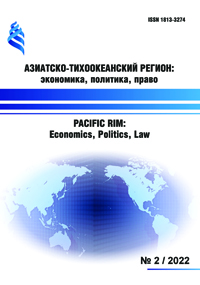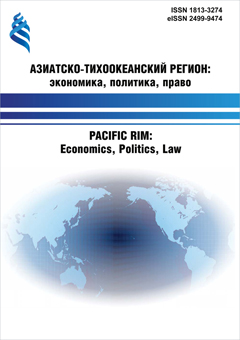RELATIONS BETWEEN CHINA AND SOUTH KOREA: THE ROLE OF THE AMERICAN FACTOR
DOI:
https://doi.org/10.24866/1813-3274/2022-2/73-84Abstract
In the 30 years that have passed since the establishment of diplomatic relations between the People's Republic of China (PRC) and the Republic of Korea (RK), relations between the two countries have developed dynamically, demonstrating the success of bilateral cooperation in various fields. The Influence of the United States is one of the important factors determining the current state and prospects for the development of Sino-South Korean relations. Pursuing the political and economic deterrence of China, the United States uses the "North Korean threat" as a pretext for the USA to deploy anti-missile systems in the region while using Japan and South Korea as a springboard for supporting US policy and building an anti-Chinese circle of encirclement and creating an Indo-Pacific equivalent of NATO. The asymmetry of the US alliance with South Korea remains one of the important reasons limiting the development of Sino-South Korean relations. After the end of the cold war, the increase in national power due to the rapid economic growth expanded the scope and goals of South Korea's foreign policy, which allowed it to become one of the regional powers. In the context of Sino-American competition, on the one hand, South Korea applies a strategy of "following" ("bandwagoning") in relations with the United States. On the other hand, it strives for national strategic autonomy. Its future role and place in the system of international relations will largely determine how South Korea will cope with the risks caused by the competition of the great Powers and if it will be able to avoid re-involvement in the competition or conflict of the great powers. Today, the country faces the need to make the right decisions and make the right choice.
Keywords: Foreign policy, regional security, Sino-South Korean relations, American factor, Indo-Pacific strategy, de-sinofication, strategy “bandwagoning”, foreign policy autonomy.



